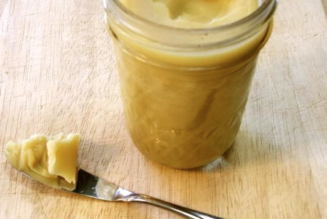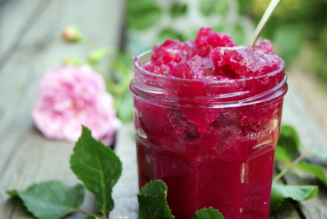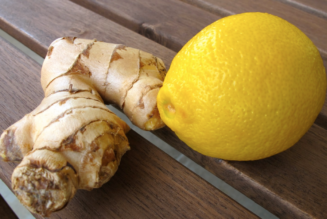How To Manage IBS Naturally
For many people, the symptoms of IBS are so severe that they can’t even leave their home or have to plan their day-to-day activities around trips to the bathroom. There are nearly 60 million Americans who have disabling symptoms of IBS such as bloating, cramps, diarrhea, constipation, and abdominal pain only to have it dismissed as a “functional” or “psychosomatic” disease; disease caused by the mind. According to Ayurveda, the symptoms of IBS resemble most of what was described many thousand of years ago – a condition called “grahani”. “Grahani” is considered the seat of digestive enzymes [“Agni”] and if impaired, can lead to altered intestinal motility. The predominant symptoms of IBS are alternating diarrhea and constipation accompanied by abdominal cramps and is often referred to as “irritable” or “spastic colon”.
“Food As Medicine.”
The Root Cause – Diet & Lifestyle
In conventional medicine, the cause of IBS is essentially unknown. According to Ayurveda, “grahani” or IBS is likely caused by a number of lifestyle factors such as improper diet, improper food-combining, stress, drinking too much fluid [especially during meals], or even suppressing natural urges. Ayurveda describes three doshas called vata, pitta, and kapha and we can think of these three doshas as the guiding principles that keep all our bodily functions balanced. However, due to imbalances caused by the above mentioned lifestyle factors [i.e. improper diet, stress, etc.] this can can affect the secretion of digestive enzymes and impair the digestive function [“Agni”]. Eventually, the by-products of impaired digestion form into toxins [“ama”] which then damages the lining of the intestines. The result is a decrease of intestinal transit time which can cause early evacuation of bowel contents [i.e. diarrhea] alternating with constipation, which is influenced by apana vata. Therefore, management of IBS is often centered around creating balance of vata dosha with emphasis on diet and lifestyle considerations.
Spice Selections To Improve Digestion
Ready-to-use spice mixtures satisfy the six ayurvedic tastes considered essential for balance. Organic Calming Vata Churna is a blend of seven ingredients, including cumin, ginger and fenugreek.
Organic Vata Calming Tea
That ‘too-much-to-do, too-little-time’ feeling can cause you to be on edge, restless, anxious. A few sips of Organic Vata Tea will help your whirling mind settle down and your body relax.
How To Treat IBS Naturally – Dr. Josh Axe
4 Steps to Treat IBS – By Dr. Josh Axe
1) What foods to stay away from if you have IBS • Gluten- This inflammatory protein in grain can cause IBS. I suggest at the start of treatment to stay away from ALL grain products (especially wheat.) After about 3-9 months you can start to try adding in some sprouted or sourdough grains. • Casein or conventional dairy products- Kefir or fermented dairy can be helpful but regular dairy can be very destructive for IBS. • Hydrogenated Oils • Raw foods- salads & raw foods can damage the gut if you have IBS so it’s best to eat only cooked foods • Cold foods- Ice water, Ice cream & cold foods are hard on digestive system • Processed or refined/packaged foods
2) Top healing foods for IBS (consume foods that nourish the colon and spleen) • White immune boosting foods ⁃ Cauliflower, Garlic and Onions- Cooked onions and garlic can kill off bad bacteria in the gut • Squashes ⁃ Butternut, Acorn and Spaghetti Squashes are nursing to spleen and colon • Bone Broth- #1 superfood to consume to heal IBS ⁃ Bone Broth soup contains amino acid to help repair and heal in intestinal lining ⁃ A perfect meal would be a crockpot with organic meat, bones/broth, and vegetables such as squash and celery.
3) Quality Supplements • Live Probiotic Supplements • L-Glutamin- amino acid that protects & nourishes gut lining • Frankincense Essential Oil- reduces inflammation • Digestive Enzymes- take at meal to help break down food so it is easier to digest
4) Focus on reducing stress • Schedule 3 things daily ⁃ Long walk in nature ⁃ Read a spiritual growth book, meditate or pray ⁃ Wind down with a detox bath at night ⁃ 1 cup epsom salt and 20 drops oil (Lavendar) and soak away.
Stress Free Emotions
For natural resistance to emotional stress and fatigue; promotes emotional balance, positive feelings, and feelings of fulfillment. Emotional balance = strong mind & body
“Gut Health”
In order to be healthy, the microbial ecosystem in the gut must be healthy. If the gut flora becomes imbalanced this can become the root cause of many of the symptoms centered around IBS. For example, the gut flora promotes optimal digestive function, provides a robust immune response, regulates metabolism and even compromises more than 75% of our immune system. It’s extraordinary that the teachings of Ayurveda have stated much of these important functions many thousands of years ago. Of great importance is the consideration of bacterial overgrowth. In fact, JAMA – The Journal of the American Medical Association has acknowledged bacterial overgrowth as being a real syndrome which seems to correlate well with IBS.
Organic Digest Tone (Triphala Plus)
Supports digestive system and elimination; assists body in absorbing nutrients; high-quality antioxidant; wide range of benefits. Good health depends on strong, efficient digestion.
Herbal Di-Gest
Supports improved digestion and balanced appetite; helps with gas, bloating, and discomfort.
Ginger
Holistic digestive aid. It is a useful digestive aid; helps to maintain good digestion and balanced gas production
Factors which can disrupt normal gut flora:
– antibiotics and other medications
– diets high in refined carbohydrates, sugar and processed foods
– diets low in fermentable fibers
– chronic stress
– chronic infections
An Ayurvedic Perspective
The basic approach to improving IBS from an Ayurvedic perspective is centered around pacifying and reducing this quality of vata. Vata is often characterized as being dry, rough, cold and mobile. Therefore a simple approach in helping to pacify vata is simply to eat fewer raw vegetables and eating meals which are grounding and generally warm, soft, and easy to digest.
“Yep, that’s right. Fewer vegetables. Vegetables (as well as some fruits) are often high in insoluble fiber. While soluble fiber can be soothing for the gut, consuming large amounts of insoluble fiber when your gut is inflamed is a little bit like rubbing a wire brush against an open wound. Ouch.” – Chris Kresser; “Gut Health”
10 Golden Rules For Healthy Eating
Common Causes Of Ama:
The main cause for the formation of ‘ama‘ or undigested food material is impaired digestive function. Therefore, factors which impair digestion and increase the formation of ama include:
– overeating and consuming cold substances
– irregular eating habits
– overconsumption of raw food
– eating heavy and fried food
– incompatible food combining
– eating with extreme emotions [i.e. anxiety, stress]
– sleeping before food is properly digested
Takra [Buttermilk] – The Divine Healing Digestive Drink
Takra or buttermilk, is a liquid preparation prepared by continuously churning yogurt in water. This preparation increases your digestive power and is often used in many health conditions. Takra is considered beneficial for many G.I. conditions such as IBD and Crohn’s disease as well as poor digestion, hemorrhoids, tumors, edema, diarrhea, anemia, urinary diseases and many other health-related conditions.
“He who uses takra daily does not suffer from diseases, and diseases cured by takra do not recur; just as amrita [divine nectar] is for the gods, takra is to humans.” – Bhavaprakasha Chpt 6.7
ENEMA:
According to the teachings of Ayurveda, the seat of vata dosha is in the colon and the therapy of choice is a rectal enema [i.e. “basti”]. This procedure should only be performed under the guidance and supervision of a qualified ayurvedic professional after having discussed the risk/benefits/alternatives with your primary care physician. Ayurveda recommends introducing 1/2 to 1 cup of sesame oil into the rectum and retain the oil for approximately 5 minutes. This is thought to help pacify vata and helps to nourish and support optimal gastrointestinal function.
Disclaimer
The sole purpose of these articles is to provide information about the tradition of ayurveda. This information is not intended for use in the diagnosis, treatment, cure or prevention of any disease. If you have any serious acute or chronic health concern, please consult a trained health professional who can fully assess your needs and address them effectively. If you are seeking the medical advice of a trained ayurvedic expert, call or e-mail us for the number of a physician in your area. Check with your doctor before taking herbs or using essential oils when pregnant or nursing.
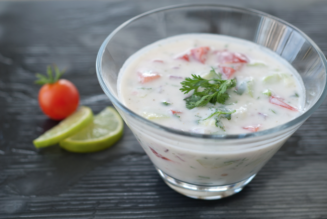
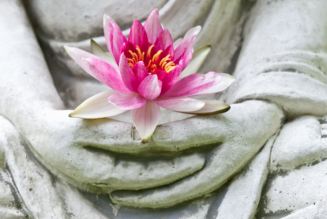
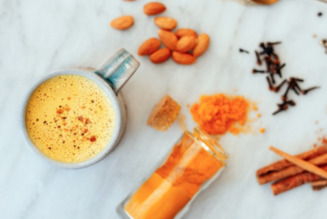
![Female Health: Amenorrhea [cessation of menses] – An Ayurvedic Perspective](https://healthyayurveda.com/wp-content/uploads/2015/07/1.-Amenorhea--327x219.png)

